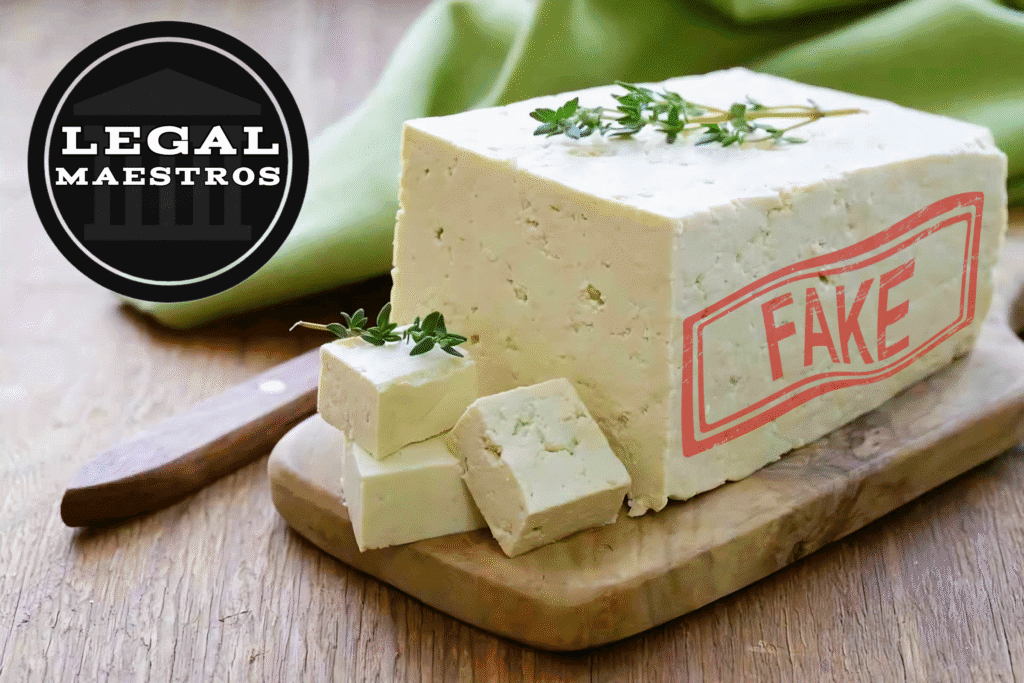
Is It Legal for Food Sellers to Offer Analogue Paneer in India? Liability Under the Food Safety and Standards Act, 2006
Introductory remarks
Over the course of the last several years, the Indian food sector has seen the rise of analogue dairy products, notably analogue paneer of particular significance. A number of disputes have been ignited questioning the legality, safety, and ethical implications of these goods, which are meant to replicate conventional dairy merchandise.
It is crucial for owners of food businesses as well as customers to have a solid understanding of the regulatory framework that governs these items.
Who or what is the Analogue Paneer?
The term “analogue paneer” refers to a product that has milk elements that are largely or totally replaced with non-dairy substances such as vegetable oils, starches, and emulsifiers. This product has the look and texture of conventional paneer, but it is manufactured by doing so.
For More Updates & Regular Notes Join Our Whats App Group (https://chat.whatsapp.com/DkucckgAEJbCtXwXr2yIt0) and Telegram Group ( https://t.me/legalmaestroeducators ) contact@legalmaestros.com.
Due to the fact that its content is drastically different from that of real paneer, there are worries over the possibility of consumer deception as well as the potential health effects.
Under the Food Safety and Standards Act of 2006, the legal status of the food
Among the laws that govern food in India, the Food Safety and Standards Act, 2006 (FSS Act) is considered to be the most important. It is the responsibility of the Food Safety and Standards Authority of India (FSSAI) to establish standards for food items and to guarantee that they are in conformity with those requirements.
To the best of the FSSAI’s knowledge, analogue dairy products are not regarded to be milk or milk products. As a result, the sale of analogue paneer is not completely prohibited; nonetheless, it is subject to severe controls in order to avoid dishonesty among consumers.
Requirements Regarding Labeling and Disclosure
The FSSAI requires that analogue dairy products be clearly labeled in order to protect the interests of consumers. According to the law, manufacturers are obligated to make it clear that the product in question is a “analogue” and not a true dairy option.
It is important to avoid using dairy terminology like “paneer” in a way that might be seen as deceptive behavior. Labels, for instance, must not give the impression that the product is manufactured from milk or that it is a milk food item. It is possible to face legal repercussions in accordance with the FSS Act if one does not comply with these labeling rules.
For More Updates & Regular Notes Join Our Whats App Group (https://chat.whatsapp.com/DkucckgAEJbCtXwXr2yIt0) and Telegram Group ( https://t.me/legalmaestroeducators )
Responsibility of Failure to Comply
The Food Safety and Standards Act (FSS Act) has a number of prohibitions that apply to food company operators who fail to comply with the mandated standards and labeling requirements. “Unsafe food” is defined as any food that includes ingredients that are harmful to one’s health, according to Section 3(1)(zz).
The individuals who are responsible for the discovery of dangerous or incorrectly labeled analogue drugs may be subject to penalties like as monetary fines and even jail. Additional legal action may be taken if it is determined that the selling of such items without the appropriate disclosure constitutes an unfair business conduct.
Influence on Consumer Awareness and Health Implications
There is a worry over the health repercussions of analogue paneer, despite the fact that it may provide cost benefits. Consumers who eat non-dairy substances on a daily basis, such as hydrogenated fats and synthetic additives, may be putting their health at danger.
With regard to the things that they buy, consumers are need to be watchful and knowledgeable. In order to make decisions that are beneficial to one’s health, it is essential to carefully read food labels and have a knowledge of the components that make up various food products.
Recent Developments in Regulatory Standards
The Food Safety and Standards Authority of India (FSSAI) has begun public discussions in order to enhance rules in response to the issues that are presented by analogue dairy products.
There have been discussions on the possibilities of mandating more transparent labeling, limiting the use of dairy terminology for goods that are not dairy, and improving enforcement procedures. By making these efforts, we want to defend the interests of consumers and guarantee that the food business is transparent.
Last but not least
Analogue paneer may be sold legally in India, providing that it is in accordance with the laws that have been established by the Food Safety and Standards Authority of India (FSSAI). With the goal of preventing consumer deception and protecting public health, proper labeling and disclosure are of the utmost importance.
Constant monitoring and regulatory changes are required in order to meet new difficulties and ensure that food safety standards are maintained as the food sector continues to undergo technological advancements.





